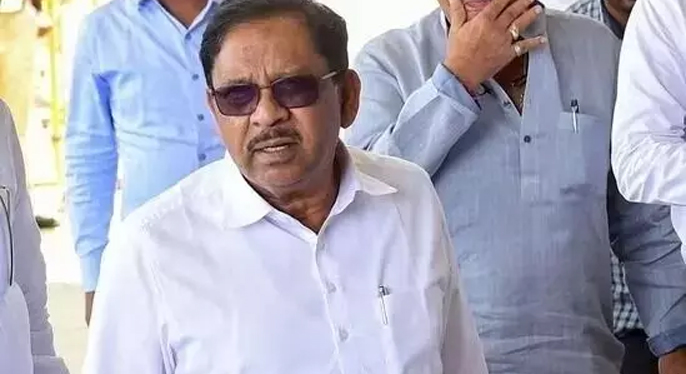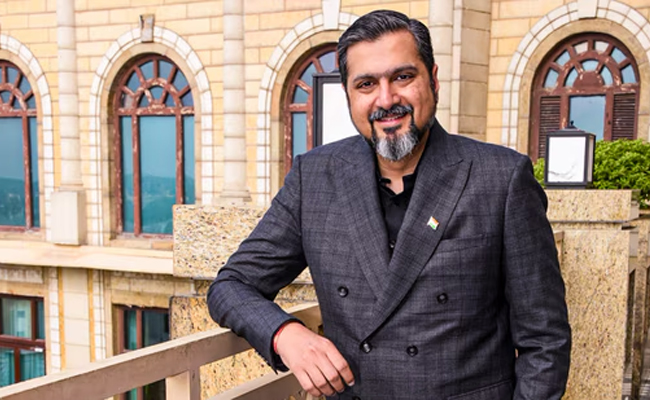A substantial scandal has erupted within the ranks of The New York Times (NYT) following the publication of a major front-page story that accused Palestinian resistance fighters of engaging in the 'systematic' use of sexual violence. The controversial article, titled 'Screams Without Words,' has ignited a firestorm of criticism, primarily focused on the credibility of its authors and the potential biases involved.
At the center of the storm is Anat Schwartz, an Israeli filmmaker co-authoring the contentious piece despite lacking a journalism background. Her ties to Israeli military intelligence have raised concerns about potential biases that may have influenced the framing of the article. Adding a layer of complexity, Schwartz's social media activity came under scrutiny, revealing that she had 'liked' posts featuring racism and violence towards Palestinians.
The article, which centered around events during a raid on October 7, made lurid and unevidenced claims about rape and mutilation by Palestinians. However, the family of the victim, prominently featured in the article, vehemently denied the claims. They accused the authors, including Schwartz, of misleading them about the article's purpose and including false information.
In a disturbing revelation that further fueled skepticism about Schwartz's objectivity, it came to light that she had 'liked' a social media post advocating for turning Gaza 'into a slaughterhouse,' including the summary execution of prisoners and violating norms. This revelation has intensified concerns about the journalist's ability to report on such a highly sensitive issue without bias.
Lead author Jeffrey Gettleman faced criticism after asserting that it was 'not his job to gather evidence' for the claims made in the article. This statement, deemed by many as an abdication of basic journalistic responsibility, added fuel to the controversy surrounding the article.
A closer look at Schwartz's background unearthed her service in Israeli military intelligence, contributing to the ongoing debate about the potential influence of her affiliations on the reporting. The NYT, in response to the escalating scandal, has initiated an investigation into the matter, indicating the severity of the concerns surrounding the article.
A report published by ‘The Intercept’ on February 28 stated, “Since the revelations regarding Schwartz’s recent social media activity, her byline has not appeared in the paper and she has not attended editorial meetings. The paper said that a review into her social media “likes” is ongoing. “Those ‘likes’’ are unacceptable violations of our company policy,” said a Times spokesperson.
“The bigger scandal may be the reporting itself, the process that allowed it into print, and the life-altering impact the reporting had for thousands of Palestinians whose deaths were justified by the alleged systematic sexual violence orchestrated by Hamas the paper claimed to have exposed.
“Another frustrated Times reporter who has also worked as an editor there said, “A lot of focus will understandably, rightfully, be directed at Schwartz but this is most clearly poor editorial decision making that undermines all the other great work being tirelessly done across the paper — both related and completely unrelated to the war — that manages to challenge our readers and meet our standards.” It added.
The Channel 12 podcast interview with Schwartz, which The Intercept translated from Hebrew, opens a window into the reporting process on the controversial story and suggests that The New York Times’s mission was to bolster a predetermined narrative.
In a response to The Intercept’s questions about Schwartz’s podcast interview, a spokesperson for the New York Times walked back the blockbuster article’s framing that evidence shows Hamas had weaponized sexual violence to a softer claim that “there may have been systematic use of sexual assault.”
Times International editor Phil Pan said in a statement that he stands by the work. “Ms. Schwartz was part of a rigorous reporting and editing process,” he said. “She made valuable contributions and we saw no evidence of bias in her work. We remain confident in the accuracy of our reporting and stand by the team’s investigation. But as we have said, her ‘likes’ of offensive and opinionated social media posts, predating her work with us, are unacceptable.”
After this story was published, Schwartz, who did not respond to a request for comment, tweeted to thank the Times for “standing behind the important stories we have published.” She added, “The recent attacks against me will not deter me from continuing my work.” Addressing her social media activity, Schwartz said, “I understand why people who do not know me were offended by the inadvertent ‘like’ I pressed on 10/7 and I apologize for that.” At least three of her “likes” have been the subject of public scrutiny.
The “Screams Without Words” @nytimes article coauthored by Anat Schwartz about mass rape has been systematically debunked by many. How did Anat, who had no journalism experience, and her 24 yr old co-author Adam Sella (nephew by marriage) come to lead a front page investigation?
— Laila Al-Arian (@LailaAlarian) February 24, 2024
Another post liked by Anat Schwartz of @nytimes talks about establishing a narrative that “Hamas is ISIS” for purposes of scaring Westerners. Raises a lot of questions about her journalistic integrity and impartiality and it doesn’t surprise me that the story has so many holes. pic.twitter.com/yJMpMCVJkj
— Laila Al-Arian (@LailaAlarian) February 24, 2024
It is her nephew!
— Esha K (@eshaLegal) February 24, 2024
This is a post from her husband. pic.twitter.com/Sgtz4B6wlL
Now, Jeffrey Gettleman spent years in Africa and he was interviewed in 2018 by times of Israel. He spews run of the mill anti-islamic bigotry. https://t.co/zzYgwwfloq pic.twitter.com/Lqzyby4pFw
— Esha K (@eshaLegal) February 24, 2024
And his quality of reporting is actually much worse than these articles mentions...https://t.co/9gxyC5Aje5
— Esha K (@eshaLegal) February 24, 2024
He admitted to it. pic.twitter.com/zibbbEby31
— Esha K (@eshaLegal) February 24, 2024
Let the Truth be known. If you read VB and like VB, please be a VB Supporter and Help us deliver the Truth to one and all.
Kolkata (PTI): Seven people were arrested from the Parnashree area in the southern part of the city for allegedly running a fake call centre, a police officer said on Saturday.
Acting on a tip-off, police raided a house on Netaji Subhas Road on Friday night and found the fake call centre operating from the ground floor, he said.
Preliminary investigation revealed that the accused had set up a bogus company using forged documents and posed as employees of an antivirus firm to call citizens in the US, the officer said.
"The callers would gain the trust of victims and then use remote access to take control of their phones or other digital devices. The accused allegedly siphoned off large sums of money, running into millions of dollars, from victims' accounts," he said.
Five laptops, two WiFi routers, six mobile phones and four headsets were seized from the accused, he said, adding that the seven are being questioned to ascertain the full extent of the racket and to identify others involved.





